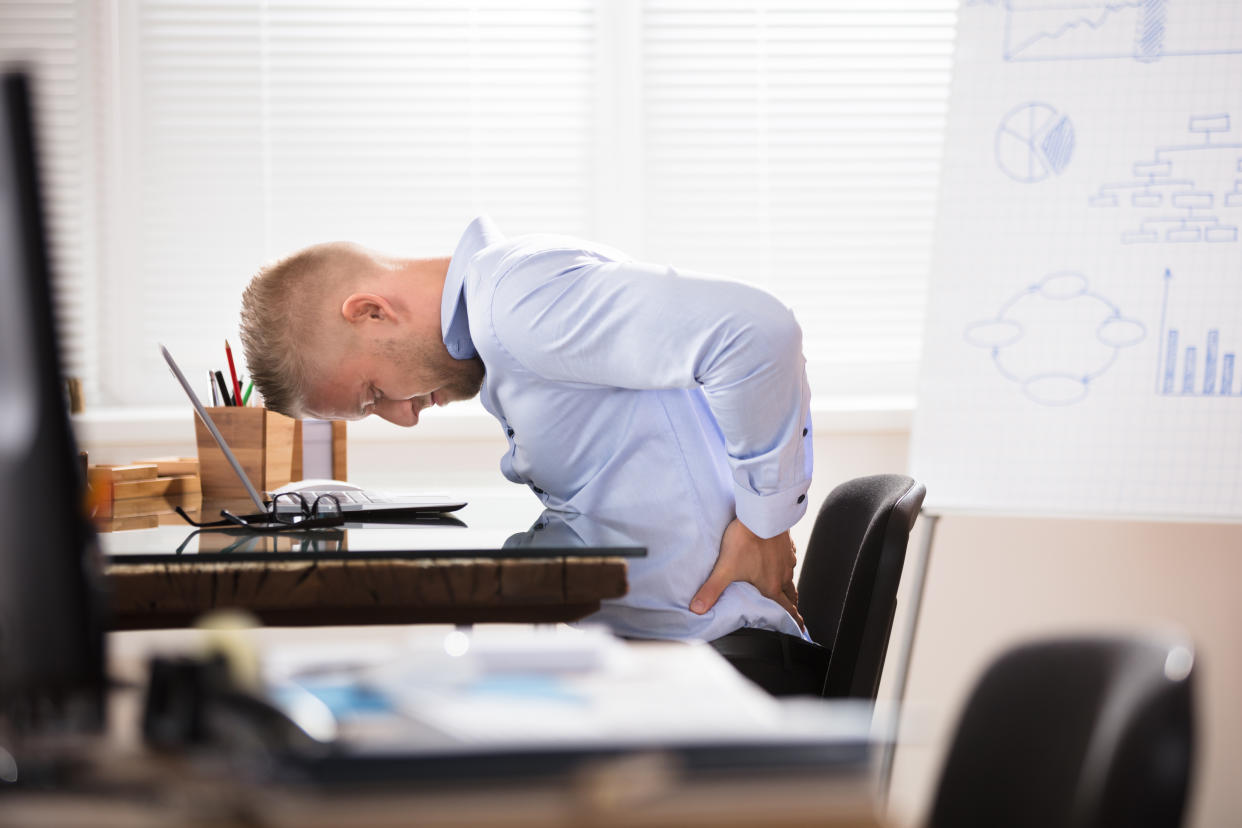Is sitting down at work all day slowly killing us?

If you’re sitting down reading this, prepare for bad news. A growing body of evidence points towards something many of us have suspected for a long time — our sedentary lifestyles will eventually be our downfall.
Whether you work in an office or from home, if you have a traditional “desk” job, chances are you spend a considerable amount of time sitting down. Even when the working day has finished, lots of us spend our evenings on the sofa, either watching TV or reading a book.
So what impact does this have on our health — and why?
Research shows spending a long time sitting is pretty terrible for our health and wellbeing. In 2017, a US study suggested that sitting for prolonged periods of time is a risk factor for early death — even if you exercise.
Based on a study of nearly 8,000 adults, researchers found a direct relationship between time spent sitting and your risk of early mortality of any cause. The greatest risk was for people who spent more than 12.5 hours a day being sedentary — and also people sitting for longer than 10 minutes at a time.
To help reduce our risk of ill health, the study recommended getting up and moving around every half an hour or so. There were some limitations to the research, including that all participants were aged 45 or older — which may not reflect other generations, but it’s still not great news for those who spent their working life chained to their desks.
Multiple studies have suggested that even when people are physically active, they’re still at risk of health problems from sitting. In 2012, an Australian study found that even people who are active for more than 300 minutes a week still face an increased risk of dying from excessive sitting.
“The association between sitting and all-cause mortality appeared consistent across the sexes, age groups, body mass index categories, and physical activity levels and across healthy participants compared with participants with preexisting cardiovascular disease or diabetes mellitus,” the researchers wrote. “Prolonged sitting is a risk factor for all-cause mortality, independent of physical activity.”
READ MORE: How sleep deprivation impacts our work and the economy
So what is it about sitting that is so bad for us? One issue is that sitting for long periods of time is thought to slow metabolism, which affects the body’s ability to regulate blood sugar and blood pressure, as well as break down body fat.
Studies have shown that excessive sitting or inactivity increases the risk of cardiovascular disease, type 2 diabetes, and cancer, among other health conditions.
Earlier this year, research from Queen’s University Belfast and Ulster University found spending large amounts of time sitting or lounging around during the day is linked to around 70,000 deaths per year in the UK.
The researchers reported that 30% of adults in England spend at least six hours a day sedentary on weekdays. On the weekends, the figure rose to 37%. They also highlighted the significant financial impact of our sedentary lives too, with the NHS spending nearly a billion pounds a year to treat the health consequences.
The picture is fairly dire, but there are some steps we can take to help prevent our desk jobs killing us. Firstly, it’s important to note that although physical activity might not counteract the harm of sitting, it still benefits our health. A meta-analysis of several studies in 2016 found that “high levels of moderate intensity physical activity” — 60 to 75 minutes a day — seemed to “eliminate the increased risk of death associated with high sitting time.”
READ MORE: How dirty workplaces and filthy offices affect you
Exercise is also known to have a hugely positive impact on our mental health, reducing stress and the likelihood of burnout. Last year, researchers at Leicester and Loughborough universities suggested reducing sitting time not only boosted wellbeing among employees, but also improved staff’s work engagement.
Getting up and moving around frequently — even just to make a cup of coffee, or to stretch your legs — can help reduce the risk of poor health from sitting. We should break up long periods of sitting time with “shorter bouts of activity for just one to two minutes,” according to the Start Active, Stay Active report.
Some people swear by “standing desks” — which allow the user to adjust the height for both sitting and standing — and are believed to help keep us moving, while improving posture and circulation.
There are a number of other ways you can reduce your sitting time too. If you commute on a bus or train, standing instead of sitting — which, let’s face it, isn’t usually optional — can help.
You can also take the stairs and walk up escalators, or take a short walking break every time you want a coffee or tea. If you’re unlikely to remember to get up, setting a reminder every 30 minutes or so might be a good idea too — and some gadgets do this automatically, such as FitBits. If it’s not too irritating for your colleagues, you could also try walking around when you’re on the phone.